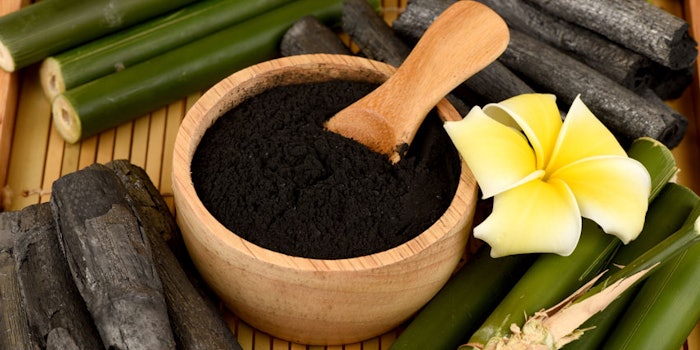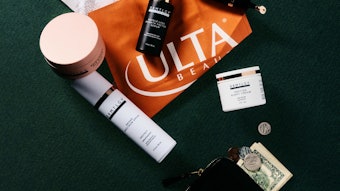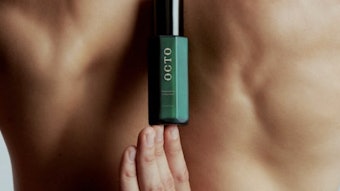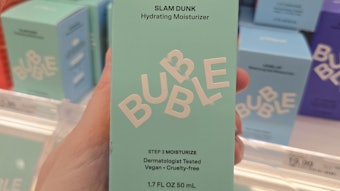
Activated charcoal traps more than toxins. It's also captured the interest of beauty consumers, to which the many recent product launches attest. Umang Pharmatech, a supplier of the ingredient, describes its production, benefits and five key applications.
Activated carbon is usually derived from charcoal and is sometimes used as biochar. When derived from coal or corn, it is referred to as activated coal. Activated charcoal is reportedly a natural treatment used to trap toxins and chemicals in the body, allowing them to be flushed out so the body doesn’t reabsorb them. It is made from a variety of sources—usually bamboo, wood, coal or coconut shell—burned without oxygen to create char. This char is then heated to a high temperature and exposed to certain gases through a multi-step process to make it extremely porous. This is the “activation” part of the process.
According to the company, the activated charcoal is beneficial for oral health. It doesn't neutralize toxins, but rather binds them to the many tiny pores on its surface. So when used in toothpaste, powders and oral health rinses, it attracts bacteria and other substances and removes them with rinsing. It can also bind to substances that stain the teeth, in turn whitening them after only a few uses.
In beauty, activated charcoal often is used to remove bacteria, dirt and build-up from the skin for a flawless complexion. Umang Pharmatech's Charcoal Spheres are suggested for cleansers and to whiten skin, and thanks to its absorption power, it purifies skin by removing dirt from pores and excess oil from the skin surface.
Thus, the five recommended formulating uses for activated charcoal include:
- Whitening teeth naturally;
- For oral health in toothpaste or mouth washes;
- As a facial mask or cleanser;
- In shampoo, for scalp health; and
- To purify water.
For more information, visit the Umang Pharmatech website.










